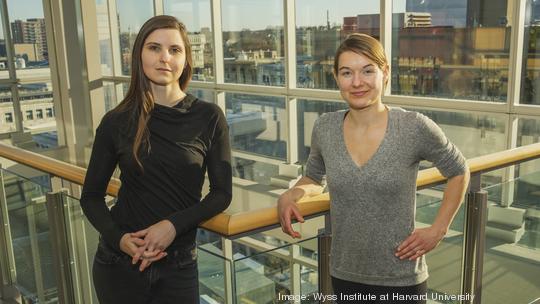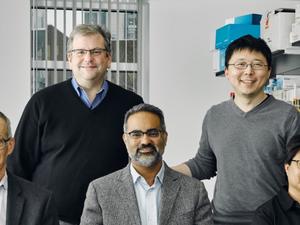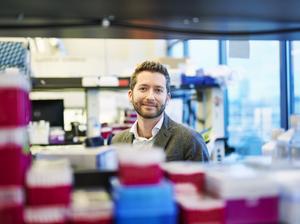
Inside the halls of the Wyss Institute at Harvard University, research scientists Shannon Nangle and Marika Ziesack are working to spin their nearly seven-year-old biochemistry project out into its own startup: Circe.
Circe, whose name is derived from the phrase "circular industries with cellular factories," engineers microbes to product triglycerides, a type of fat that constitutes most of human body fat as well as body fat in other vertebrate animals and vegetables. The microbes Nangle and Ziesack have created use carbon dioxide and hydrogen to produce these fats through a fermentation process. The microbes "eat" those two gases — both of which are greenhouse gases, Nangle and Ziesack note — and process them, then emit the fats as a byproduct.
Circe's biotechnology allows the researchers to tailor the microbes in small ways to achieve a variety of chemical results. That might sound overly technical, but it's chemical traits that make up what we interpret as flavor, texture, nutrition and structural stability.
"It opens up this whole chemical space," Nangle said. "How we're envisioning the company is, we will basically be fats on demand. Tell us which fat you want, and we will engineer the microbe to make that one molecule."
Eating greenhouse gases
Nangle envisions a variety of potential applications for Circe's engineered fats, but she and Ziesack are currently focused on the food industry in particular. Food production, they note, is responsible for emissions of carbon dioxide, methane and other greenhouse gases via deforestation, digestion by ruminant livestock like cattle, fertilizer use, transportation and more. Overall emissions are equivalent to about 16 billion metric tons of carbon dioxide a year, or about 30 percent of total global emissions, according to a recent report.
That represents a market opportunity for Circe. The budding startup's engineered fats are food-grade, so they can be used in food products and replace fats derived from plants and animals, eliminating the need for several aspects of the existing food-production chain. Nangle and Ziesack are looking to exit the Wyss Institute by mid-2021 and hire a chemical engineer as well as a food scientist. They are also looking to raise outside funding for the first time.
Aside from the food industry, Circe's small team is exploring opportunities in the personal care space. Nangle — whose research, she quipped, has led her to create a skincare routine for the first time — specifically mentioned polyhydroxic acids, or PHAs, which are used as a skin exfoliant. She also believes there are other opportunities for bioengineered gases, from agriculture to manufacturing.
"Fundamentally, we want to take the next step in gas fermentation," Nangle said. "Like, if a steel plant makes carbon monoxide and just vents carbon monoxide into the atmosphere, we'd have engineered bugs that eat the carbon monoxide and make ethanol. There's commercial viability in that system, but it's using a microbe that's limited in its metabolic flexibility. Rather than going from a simple gas to a relatively simple product, we want to go from a simple gas to a complex product."
"We have this long-term vision where this is not about making a fat or a food — it's about how we do manufacturing," Ziesack added. "We can make a more circular economy."








